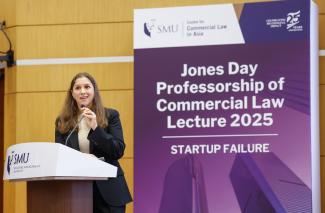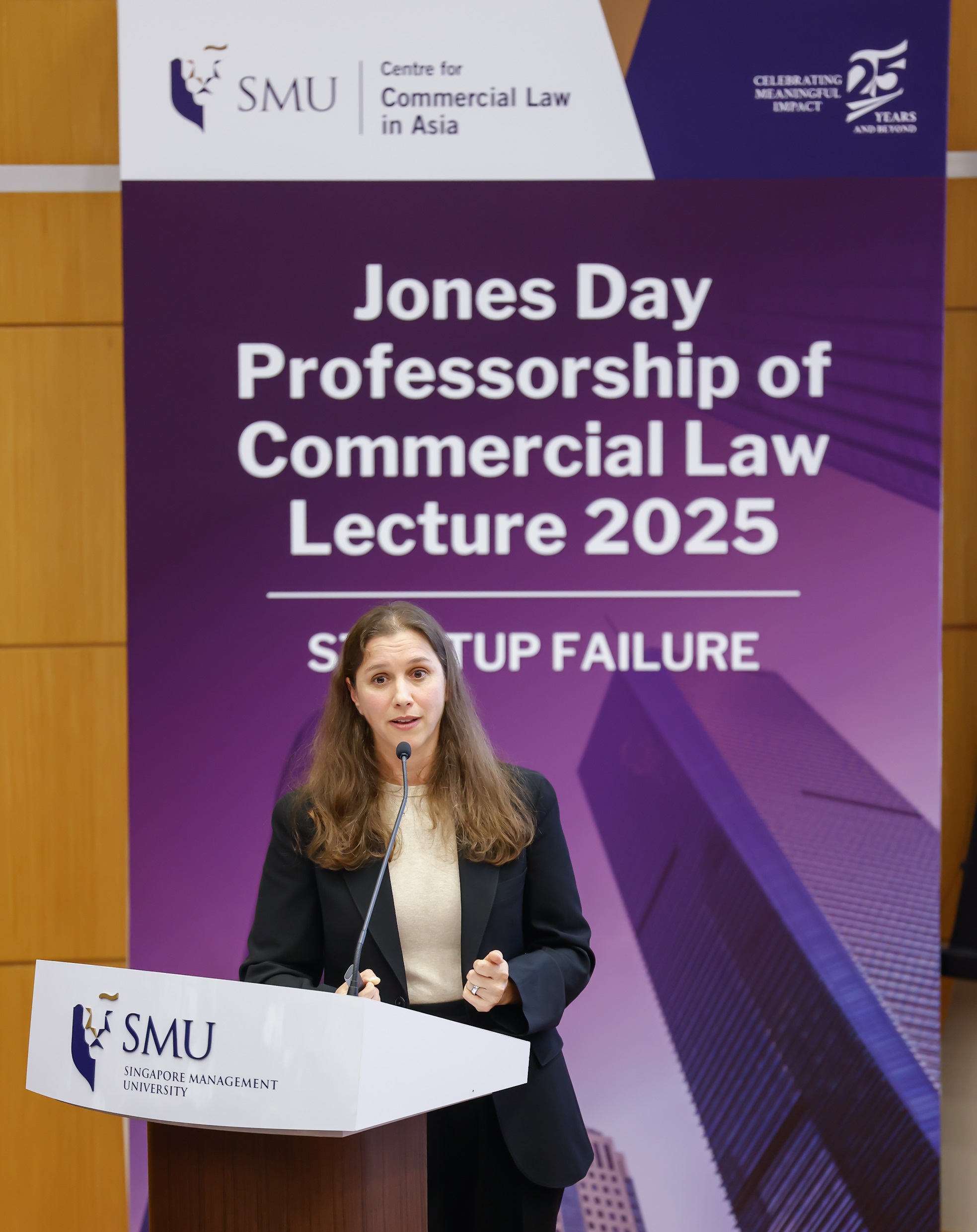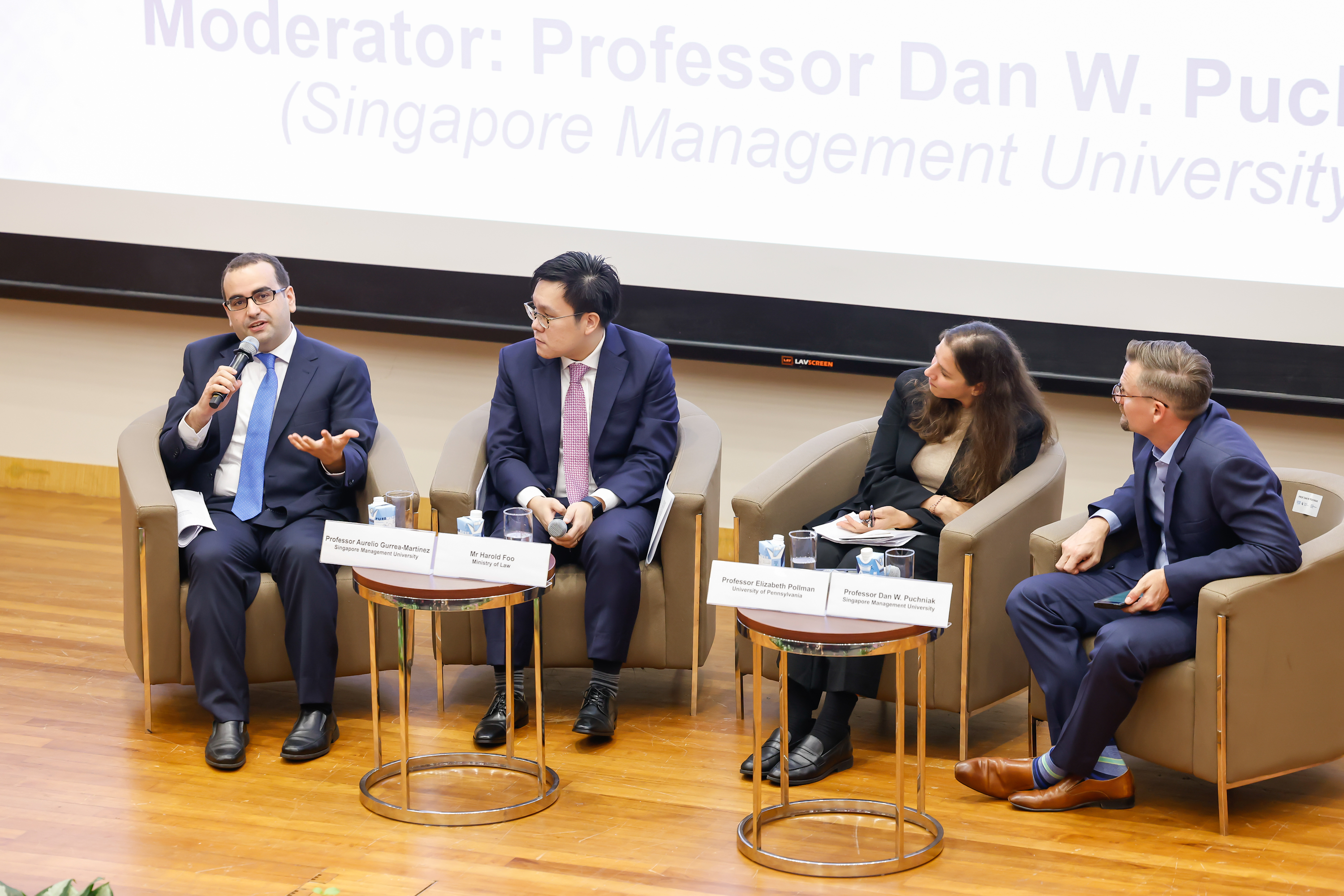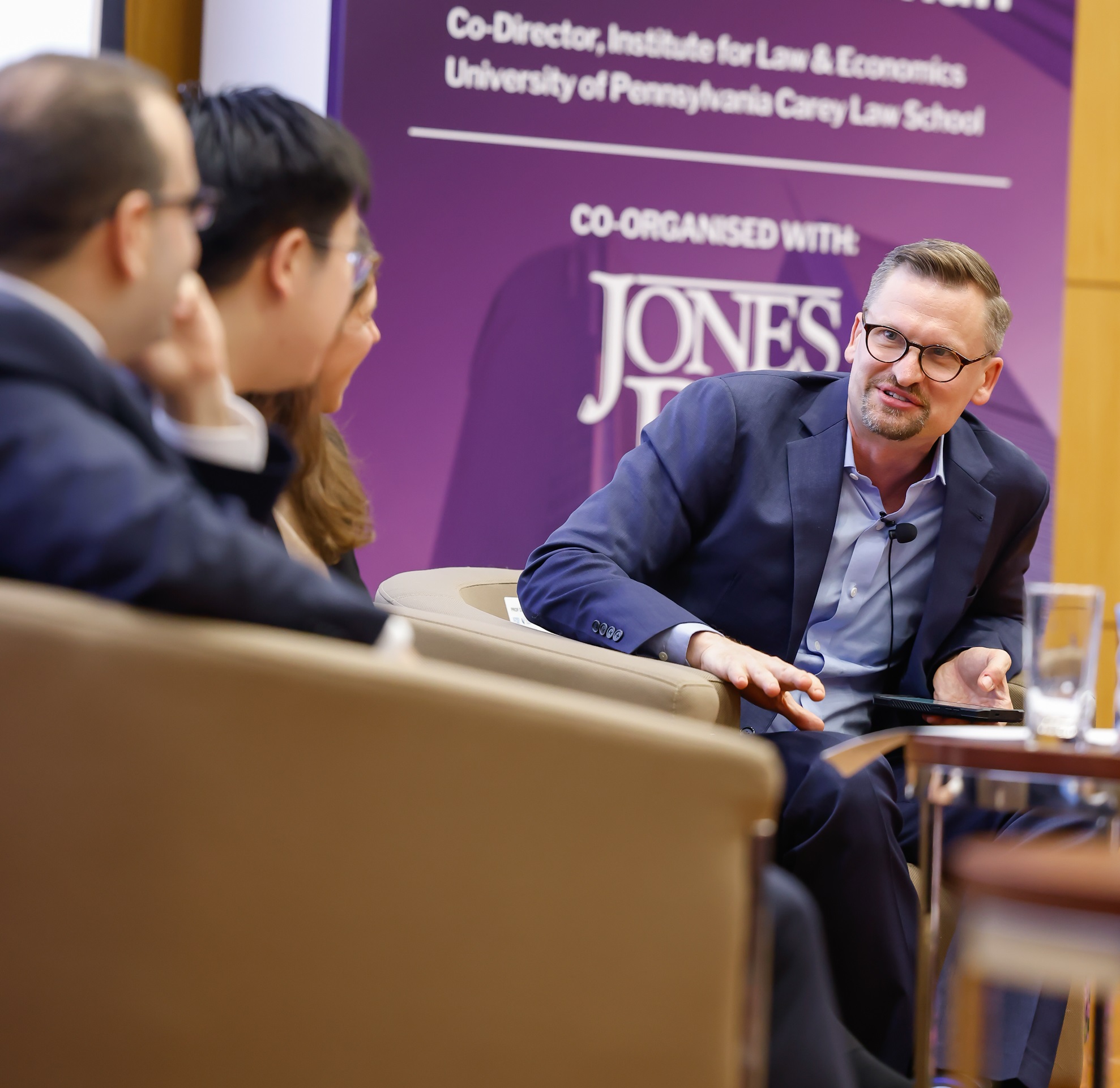
What happens when startups fail — and why does it matter more than ever?
On 16 April 2025, leading corporate law scholar Professor Elizabeth Pollman from the University of Pennsylvania Carey Law School delivered a thought-provoking lecture at the 15th Jones Day Professorship of Commercial Law Lecture hosted by Singapore Management University (SMU) Yong Pung How School of Law (YPHSL), shedding new light on how cultural norms, legal frameworks, and venture capital practices shape the silent majority of startup outcomes: failure.
Speaking to a distinguished audience that included Singapore Supreme Court judges, Judicial Commissioners, legal academics, and industry professionals, Professor Pollman challenged traditional narratives of entrepreneurial success and called for smarter, resilient legal strategies to support the future of innovation ecosystems.
The Lecture was graced by prominent members of the Singapore judiciary, including Justice Kannan Ramesh (Judge of the Appellate Division), Justice Philip Jeyaretnam (President of the Singapore International Commercial Court), Judicial Commissioner Alex Wong, and Judicial Commissioner Sushil Nair; alongside Dean of SMU YPHSL Professor Lee Pey Woan, and nearly 300 attendees from the legal and business communities.
Redefining success and failure
Professor Pollman opened by challenging conventional views of success and failure in the startup world. Success, she explained, is typically defined as achieving a liquidity event— a high-value acquisition or initial public offering (IPO) — that delivers financial returns to all equity holders. Failure, conversely, occurs when startups are unable to generate such returns, even if acquired under distressed circumstances.
Despite being the prevailing outcome, startup failure has been relatively underexplored in legal scholarship. Professor Pollman highlighted the need to better understand how failure is managed — and how it could be governed more effectively.

Beyond bankruptcy: evolving exit strategies
Professor Pollman shared that most startups do not utilise formal bankruptcy proceedings, which are often ill-suited for asset-light, talent-driven businesses. Instead, a range of alternative pathways have emerged, including:
- Soft-landing acquisitions, where distressed startups are acquired — often framed as successful exits despite minimal returns.
- Acqui-hires, where companies acquire startups primarily to recruit their talent.
- Assignment for the Benefit of Creditors (ABC), a quicker and less formal liquidation of assets compared to traditional bankruptcy.
These approaches, she noted, reflect not only economic efficiency but also deeply entrenched norms in venture capital practice. They allow founders and teams to exit with reputational dignity, and enable the recycling for talent and capital within the innovation ecosystem — a phenomenon that Professor Pollman termed as the capacity to "fail with honour."
Challenges ahead: a changing venture capital landscape
Looking ahead, Professor Pollman warned that the traditional mechanisms for managing failure could come under pressure. The growing presence of institutional investors and major technology platforms in the venture space, coupled with heightened antitrust scrutiny and labour concerns, could disrupt established practices like acqui-hires.
She urged that regulatory frameworks around corporate law must evolve to address these shifts, ensuring that startups can navigate distress while minimising reputational damage and maximising recovery for stakeholders — while still supporting innovation and entrepreneurship.

Panel discussion: Singapore’s perspective
Following the lecture, a dynamic panel discussion brought Professor Pollman’s insights into dialogue with a panel comprising Mr Harold Foo, Deputy Director of Policy Advisory Division and Counsel for Parliamentary Affairs at the Ministry of Law, Singapore; Associate Professor Aurelio Gurrea-Martínez, Head of SMU’s Singapore Global Restructuring Initiative (SGRI). The panel discussion was moderated by Professor Dan W. Puchniak, Director of SMU’s Centre for Commercial Law in Asia (CCLA).
The panel explored Singapore’s ongoing insolvency reforms and discussed how global trends could shape the next phase of restructuring and startup governance locally.
A continuing legacy of thought leadership
Organised by CCLA at YPHSL, the Jones Day Lecture is a cornerstone event reflecting SMU’s growing thought leadership in comparative restructuring and insolvency law, building on the momentum created by initiatives like the Singapore Global Restructuring Initiative.
In her remarks, Professor Lee Pey Woan expressed heartfelt thanks to the Jones Day Foundation, which has been steadfast supporters of the Lecture Series over the years. “We are most grateful for this consistent support and hope that we will be able to continue this prestigious Lecture Series for many years to come,” she said.
The Jones Day Foundation also sponsors Scholarships and Jones Day Top Scholar Award, strengthening a partnership that continues to bring world-class thought leadership to Singapore’s legal community.

- End -